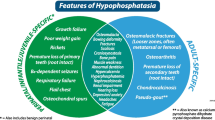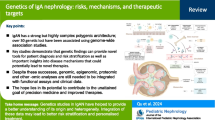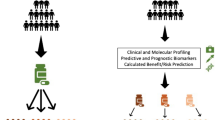Abstract
Background. The etiology of gallstone formation is multifactorial, and genetic factors are involved. The genetic variations of cholecystokinin A receptor (CCK-AR) in patients having gallstones and the molecular mechanisms of this polymorhpism were examined. The involvement of CCK-AR in gallstone formation was confirmed using CCK-AR gene knockout mice. Methods. CCK-AR gene expression was determined by Northern transfer analysis in gallbladders with or without gallstones. Genetic variations were determined by Southern blot and by direct sequencing. Molecular mechanisms in terms of the transcriptional activity and methylation status were examined. Finally, we investigated whether gallstone formation was enhanced in CCK-AR gene knockout mice. Results. The gene expression of CCK-AR was significantly decreased in gallbladders with gallstones compared to those without gallstones. No genetic variations were detected in the coding region, but two sequence variations were detected in the promoter region in gallstone patients. However, no significant differences were found for the promoter activities of polymorphic promoter constructs. In contrast, less methylation in the promoter region was related to substantial expression of the CCK-AR gene. Gallstone formation was enhanced in CCK-AR gene knockout mice. The homozygote (GG/TT) polymorphism of the CCK-AR gene showed a significantly higher percentage of body fat. Conclusions. Deteriorating gallbladder contractions, possibly induced by alterations in the CCK-AR gene, as well as CCK-AR gene polymorphism, promoted gallstone formation.
Similar content being viewed by others
References
Kajiyama G. Etiology and clinical feature of cholesterol gallstones (in Japanese). J Jpn Soc Intern Med 2000;89:1728–37.
Grundy SM, Kaiser SC. Highlights of the meeting on prevention of gallstones. Hepatology 1987;7:946–51.
Lammert F, Carey MC, Paigen B. Chromosomal organization of candidate genes involved in cholesterol gallstone formation: a murine gallstone map. Gastroenterology 2001;120:221–38.
Shoda J, He BF, Tanaka N, Matsuzaki Y, Osuga T, Yamamori S, Miyazaki S, et al. Increase of deoxycholate in supersaturated bile of patients with cholesterol gallstone disease and its correlation with de novo synthesis of cholesterol and bile acids in liver, gallbladder emptying, and small intestinal transit. Hepatology 1995; 21:1291–302.
Sharma BC, Agarwal DK, Dhiman RK, Baijal SS, Choudhauri G, Saraswat V. Bile lithogenicity and gallbladder emptying in patients with microlithiasis: effect of bile acid therapy. Gastroenterology 1998;115:124–8.
Yu P, Chen Q, Disao Z, Harnett K, Biancani P, Behar J. Signal transduction pathways mediating CCK-induced gallbladder muscle contraction. Am J Physiol 1998;275: G203–11.
Chen Q, Amaral J, Oh S, Biancani P, Behar J. Gallbladder relaxation in patients with pigment and cholesterol stones. Gastroenterology 1997;113:930–7.
Xiao ZL, Chen Q, Biancani P, Behar J. Mechanisms of gallbladder hypomotility in pregnant guinea pigs. Gastroenterology 1999; 116:411–9.
Xiao AL, Chen Q, Amaral J, Biancani P, Jensen RT, Behar J. CCK receptor dysfunction in muscle membranes from human gallbladders with cholesterol stones. Am J Physiol 1999;276:G1401–7.
Wank SA. Cholecystokinin receptors. Am J Physiol 1995;269:G628–46.
Funakoshi A, Miyasaka K, Matsumoto H, Yamamori S, Takiguchi S, Kataoka K, et al. Gene structure of human cholecystokinin (CCK) type-A receptor: body fat content is related to CCK type-A receptor gene promoter polymorphism. FEBS Lett 2000;466:264–6.
Takata Y, Takiguchi S, Funakoshi A, Kono A. Gene structure of rat cholecystokinin type-A receptor. Biochem Biophys Res Commun 1995;213:958–66.
Takata Y, Takiguchi S, Kataoka K, Funakoshi A, Miyasaka K, Kono A. Mouse cholecystokinin type-A receptor gene and its structural analysis. Gene (Amst) 1997;187:267–71.
Takiguchi S, Suzuki S, Sato Y, Kanai S, Miyasaka K, Jimi A, et al. Role of CCK-A receptor for pancreatic function in mice: a study in CCK-A receptor knockout mice. Pancreas 2002;24:276–83.
Suzuki S, Takiguchi S, Sato N, Kanai S, Kawanami T, Yoshida Y, et al. Importance of CCK-A receptor for gallbladder contraction and pancreatic secretion: a study in CCK-A receptor knockout mice. Jpn J Physiol 2001;51:585–90.
De Weerth A, Pisegna JR, Huppi K, Wank SA. Molecular cloning, functional expression and chromosomal localization of the human cholecystokinin type A receptor. Biochem Biophys Res Commun 1993;194:811–8.
Funakoshi A, Fukamizu Y, Miyasaka K. Mechanism of cholecystokinin-A receptor antagonist on human pancreatic exocrine secretion: localization of CCK-A receptor in the human duodenum. Digestion 1999;60(suppl l):75–80.
Inoue H, Iannotti CA, Welling CM, Veile R, Donis-Keller H, Permutt MA. Human cholecystokinin type A receptor gene: cytogenetic localization, physical mapping, and identification of two missense variants in patients with obesity and non-insulin- dependent diabetes mellitus (NIDDM). Genomics 1997;42:331–5.
Takata Y, Takeda S, Kawanami T, Takiguchi S, Yoshida Y, Miyasaka K, Funakoshi A. Promoter analysis of human cholecystokinin (CCK) type-A receptor gene. J Gastroenterol 2002;37 (in press).
Funakoshi A, Miyasaka K. Cholecystokinin (CCK)-A receptor gene abnormality and life style related diseases (in Japanese with English abstract). Nippon Shokakibyou Gakkai Zasshi (Jpn J Gastroenterol) 2000;97:311–8.
Miller LJ, Holicky EL, Ulrich CD, Wieben ED. Abnormal processing of the human cholecystokinin receptor gene in association with gallstones and obesity. Gastroenterology 1995;109:1375–80.
Matsusue K, Takiguchi S, Takata Y, Funakoshi A, Miyasaka K, Kono A. Expression of cholecystokinin type A receptor gene correlates with DNA demethylation during postnatal development of rat pancreas. Biochem Biophys Res Commun 1999;264:29–32.
Graff JR, Herman JG, Myohanen S, Baylin SB, Vertino PM. Mapping patterns of CpG island methylation in normal and neo-plastic cells implicates both upstream and downstream regions in de novo methylation. J Biol Chem 1997;272:22322–9.
Huang TH, Perry MR, Laux DE. Methylation profiling of CpG islands in human breast cancer cells. Hum Mol Genet 1999;8:459–70.
Bray GA. Complications of obesity. Ann Intern Med 1985;103:1052–62.
Author information
Authors and Affiliations
Rights and permissions
About this article
Cite this article
Miyasaka, K., Takata, Y. & Funakoshi, A. Association of cholecystokinin A receptor gene polymorphism with cholelithiasis and the molecular mechanisms of this polymorphism. J Gastroenterol 37 (Suppl 14), 102–106 (2002). https://doi.org/10.1007/BF03326426
Published:
Issue Date:
DOI: https://doi.org/10.1007/BF03326426




